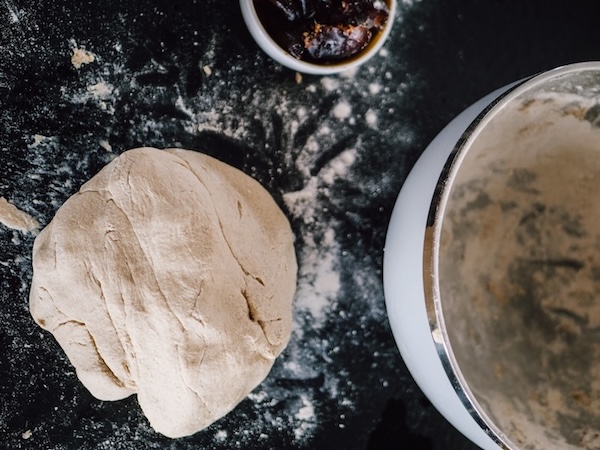When conscious entrepreneurs, teachers, creators and purpose driven small business owners decided to charge a certain fee for products, services, workshops, artwork, etc., we often tend to consider only the obvious costs. But there are three very important things that get overlooked. This episode is all about them.
Want to 🎧 listen to this episode? Scroll down/click here. Or, continue reading...
“It’s a good thing I spoke to you. I wasn’t gonna charge anywhere near that!”
That’s from a lady who’d called me for business advice. She was about to start offering personal workshops of very specialised, whole foods plant based, vegan baking. Her plan was to travel all the way to the student’s house, carry all the premium ingredients herself (because WFPB requires lots of nuts, dates, dry fruits and stuff), and teach a personalised class to the student for several hours.

She was about to undervalue herself so much! I wanted to reach my hands through the phone, grip her shoulders and say, “you are worth so much more. Come on!”
“How much should I charge for this?”
That’s a common question people ask me. Specifically my vegan business coaching clients, but others too.
And whether it’s for products, services, workshops, art…the number they have in mind is almost always sure to be lower than it needs to be.
Women in particular are hesitant to ask for what they deserve, all thanks to patriarchy.
So, to all conscious, purpose driven small business owners, teachers, creators, artists…Look, just because you deeply care about the work you do, and you want the whole world to embrace the cause you’re so passionate about, doesn’t mean you need to low ball your prices. Okay?
In a world overrun with heartless, mindless, zero principled businesses and corporations, you’re trying to make a positive difference. With your work, your creativity, your products, services and everything, you create meaning in this world.
You’re helping to transform lives so of course you’re worth more!

When you’re trying to figure out your pricing, of course there are many things to consider, but here are three questions you need to ask yourself. You’re probably ignoring these, probably overlooking them.
One: Are you a specialist?
This means you serve people who are mainly dismissed by the mainstream market. You’re either teaching, or creating a product or service that’s special. It’s not a commonly available thing.
In the example of the lady above – vegan, WFPB, gluten-free baking classes. It’s rare to find teachers who actually teach you this. So then, you know, that makes you special, that makes you different. Your unique skill, knowledge, experience they all carry an extra value all on their own.
You need to charge more just for that because you went through a lot of learning, a lot of experimentation, a lot of work to get to where you are, to have the knowledge that you do have. So if you are a specialist, then being that specialist carries an extra charge that you need to consider.
Two: When you calculate costs – ingredients, materials, fuel, rent, etc. – are you taking into account the most valuable resource of all? Time.

A lot of us, we think, “I enjoy spending time on my business. So, you know, it’s barely work, it’s so much fun. It’s something I’m passionate about. I love doing this!” We all have this tendency to feel like our time is not worth much. Or we don’t even think about it.
Now, just because you enjoy spending time in your business, doesn’t mean your time’s worth any less.
Take into account how much time you’re spending. This includes travel time, preparation time, shopping for materials or ingredients time, all of it. All the time matters. So take time into account when you’re calculating your charges.
Three: How much effort are you personally putting in? Things that just cannot be delegated so you have to do them yourself.
I’m not talking about work you can delegate, but you’re like, “oh I’ll do it myself.” That’s not a very wise thing to do. If you can delegate something, delegate it. Don’t look for perfection.
One of my earliest episodes, number nine on this podcast, is called The Magic of Delegation. Go and listen to it. It was one of the earliest lessons I learned in my own business journey, the power of delegating and moving on. So no, I’m not talking about those things where you’re unnecessarily just doing work because you don’t want to delegate or you haven’t learned how to delegate properly.
But there are things that cannot be delegated, that you have to do. You’re the expert in this, only you have the knowledge. Or your touch, your personal involvement, is needed. There you have to consider… How much effort are you personally putting in? And then, add that to your pricing.
It counts for a lot because you’re being personally involved. Again you have to remember, just because putting in the effort makes you happy, brings you joy, doesn’t mean you should ignore it while calculating your prices.

So to recap, the three questions to ask yourself before pricing anything.
Are you:
- A specialist? Do you have unique abilities and skills?
- Taking into account every bit of time you spend?
- Considering your personal effort? The work which can’t be delegated.
These three things are often overlooked when we calculate our prices. We go for the very basic, obvious things, but we forget about these. So the next time you wonder how much to charge for your product, your service, your workshop, your art, whatever you’re offering, keep these things also in mind, okay?
Otherwise you’re going to be like that lady. The price I suggested to her was three to four times more than what she was considering. That’s how much she was under undervaluing herself. Don’t do that.
If you like this episode of The Feel Good Factor, then you’ll love my free newsletter, The Feel Good Tribe.
I send out emails a couple of times a month. They have a lot of stories, and I do share tips and takeaways in them. Go here and sign up.
All right! I look forward to talking to you again next week. Bye! Take care.
Listen to the episode on the audio player below 👇🏽 (or on any podcast app you like).
(If you’d like to read the gently edited text version, scroll to the top or click here.)
New here? Find out more about The Feel Good Factor Podcast. If you think this episode can help someone, please share it with them. I’d also really appreciate a rating/review wherever you listen to podcasts. They help the show get discovered by more people like you.
Susmitha Veganosaurus

“I read voraciously, find humour in most things, and I’m most in my element when I’m teaching, writing, and playing with clay. I believe authenticity and kindness are the keys to world peace. Sign up for myfree newsletterwhere I share conversational emails with stories about Life and Business Tips, Vegan Hacks, Holistic Guidance, and more.“